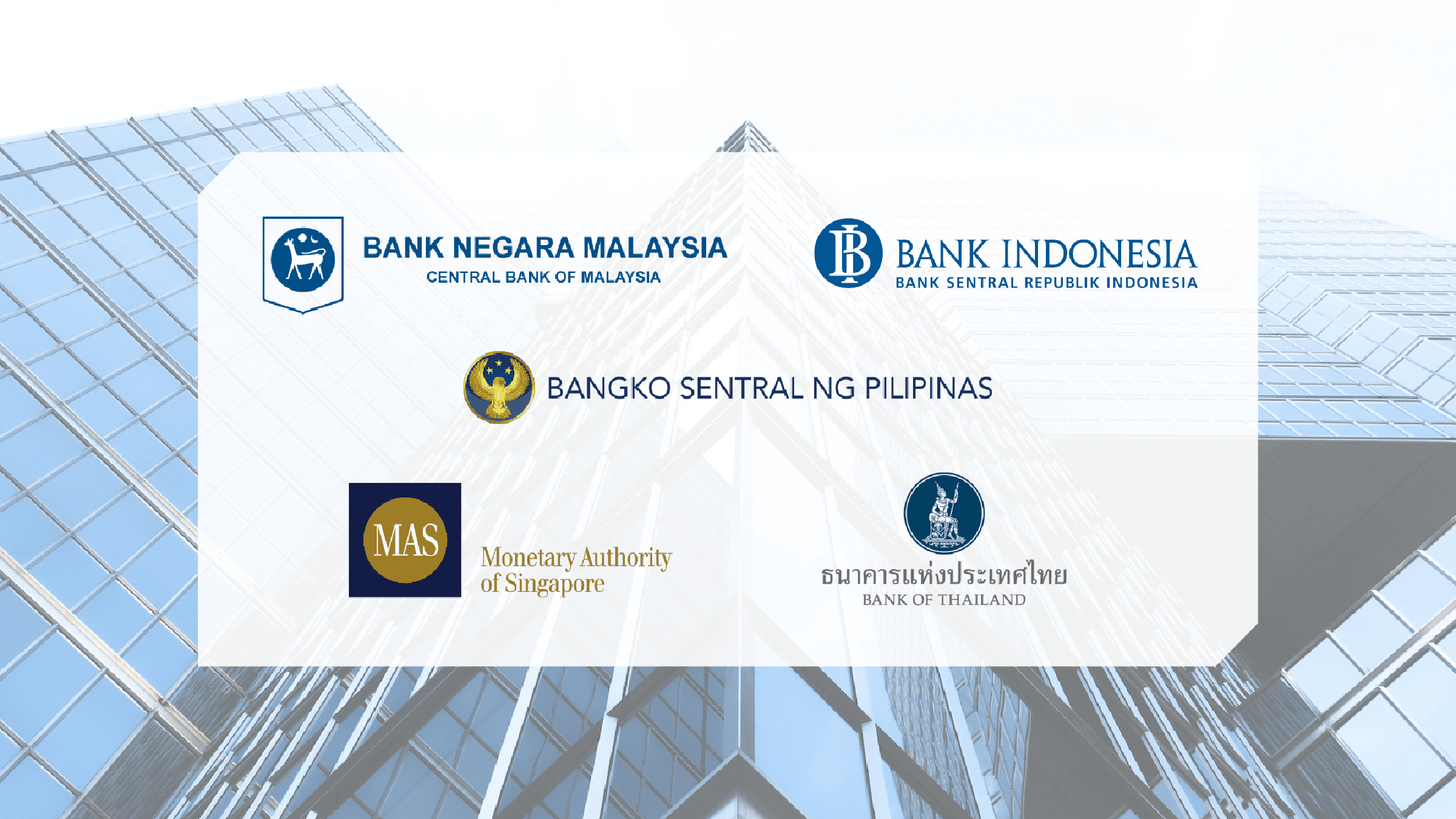The central banks of Indonesia, Malaysia, the Philippines, Singapore, and Thailand all expressed their full support and cooperation on the Regional Payment Connectivity.
Bank Indonesia (BI), Bank Negara Malaysia (BNM), Bangko Sentral ng Pilipinas (BSP), Monetary Authority of Singapore (MAS), and Bank of Thailand (BOT) have all agreed to strengthen and expand payment connectivity cooperation to support faster, cheaper, more transparent, and more inclusive cross-border payments.
A Memorandum of Understanding (MOU) on Cooperation in Regional Payment Connectivity (RPC) was signed on the sidelines of the G20 Leaders' Summit in Bali, Indonesia, on November 14, 2022, with a keynote address from Indonesia's President Joko Widodo.
President Widodo emphasized the importance of concrete collaborative joint action in addressing global challenges during his remarks at the signing ceremony. He also expressed his sincere appreciation to the Governors of the five central banks for their dedication to delivering innovative breakthroughs that will accelerate regional payment connectivity.
RPC benefits
The RPC is expected to play a significant role in accelerating regional economic recovery and encouraging inclusive growth. Cross-border payment connectivity promotes and facilitates cross-border trade, investment, financial deepening, remittance, tourism, and other economic activities, as well as a more inclusive financial ecosystem in the region.
This is especially beneficial for micro, small, and medium-sized businesses (MSMEs), as it will make it easier for them to enter international markets. The collaboration will also include a variety of modes, such as QR codes and fast payment.
With the G20 establishing its Roadmap for Enhancing Cross-Border Payments, accelerating economic and financial digitalization has become a global initiative. The cooperation initiative also aligns with Indonesia's G20 Presidency priority agenda in digital transformation, including through payment systems in the digital era, as indicated by the joint efforts of Indonesia, Malaysia, the Philippines, Singapore, and Thailand to pursue enhanced cross-border payment connectivity.
This payment connectivity initiative could be expanded in the future to include other countries in the region as well as potential partner countries outside the region. This milestone also marks the start of Indonesia's chairmanship of the Association of Southeast Asian Nations (ASEAN) in 2023.
This collaborative effort also supports ASEAN's shared goal of developing connected payment systems that will enable faster, more seamless, and more affordable cross-border payments throughout the region. In line with ASEAN's pragmatic approach to deepening integration through mutually beneficial arrangements based on level of readiness, the initiative provides the foundation for wider ASEAN participation in the near future, thus fostering stronger regional economic ties.
Governors’ statements
“This MOU serves as a significant milestone in paving the road for advancing cross-border payment connectivity. Existing bilateral payment connectivity arrangements will be expanded as part of the region’s efforts to strengthen its economic integration. Such collaboration among central banks is key to accelerating economic recovery. We hope that other countries will follow this good example and leadership in implementing cross-border payment connectivity.” BI Governor Perry Warjiyo said, emphasizing the significance of the MOU.
Governor Nor Shamsiah Yunus of BNM said, “The initiative underscores the importance of central bank collaboration in supporting the development of next-generation payment connectivity. Realising the vision of an ASEAN regional network of fast and efficient cross-border payment systems will advance our digital ambitions and further deepen financial integration for the benefit of the region’s economic development.”
Meanwhile, managing director Ravi Menon of MAS stated,
“This MOU underscores ASEAN’s commitment to achieve regional payments interoperability and connectivity by 2025 to enable cheaper, faster, and more transparent cross-border payments. ASEAN’s effort is aligned with the G20’s goal of addressing existing frictions in global cross-border payments, creating new business opportunities and enabling inclusive growth.”
“The more we recognize how interdependent our economies are, the more we need to be deliberate in our pursuit of the vision of an interconnected ASEAN region. This MOU concretizes our collaborative and inclusive approach to enhancing cross-border payments in the ASEAN that will translate into efficiency gains and cost savings in various international financial transactions and economic activities.” BSP Deputy Governor Mamerto E. Tangonan, who represented BSP Governor Felipe M. Medalla, added.
Lastly, the BOT's Deputy Governor Ronadol Numnonda, who represented BOT Governor Sethaput Suthiwartnarueput, stressed that “Our ASEAN region has now become a global hotspot in cross-border payments linkages. Building on our previous efforts, this MOU marks another milestone in our ASEAN Payment Connectivity initiative in working together to address the long-standing pain points in cross-border payments. It also dovetails ASEAN members’ current network of bilateral cross-border payment linkages and will serve as a basis for multilateral collaboration going forward. Further enhancing regional payment connectivity will pave the way for ASEAN’s digital transformation and deepen financial integration in the region.”
All representatives from the central banks of Indonesia, Malaysia, the Philippines, Singapore, and Thailand expressed their full support and described the MOU as a major milestone in the ASEAN Payment Connectivity. It demonstrates how important regional payment connectivity is for these countries, and one can only hope that it will expand further to other regions to promote inclusive cross-border payments.
Tags: #CentralBanks, #RPC, #MOU, #Inclusive, #Payment

